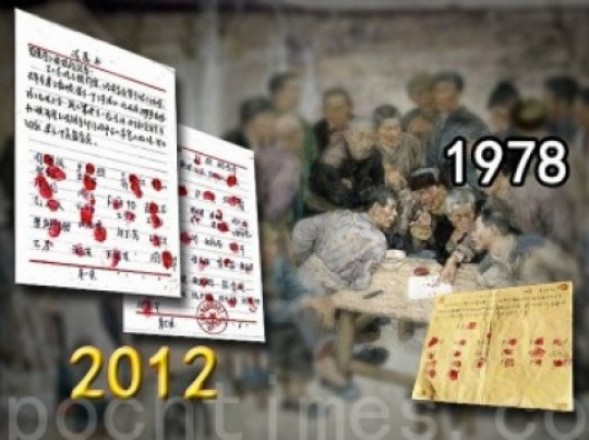
Chinese Scholars Voice Support for Falun Gong and ‘the Brave 300
By Gao Zitan
Epoch Times Staff
In early April, in an unprecedented manner, 300 Hebei Province households stood up for one of their fellows, a Falun Gong practitioner who had been arrested for his beliefs and tortured. Using their names and identities, knowing they would likely feel the full weight of the Chinese regime on their backs, together they petitioned the authorities for his release. Their act of courage, which marks them ‘the Brave 300,’ has shaken the upper echelons of the Chinese communist party, and prompted intellectuals in China and abroad to add their voices to those of the villagers.
Inspired by the Brave 300, a well known intellectual in mainland China spoke with the Epoch Times on May 25, on condition of anonymity:
“I think the significance [of this event] is it offers an opportunity to solve the ‘Falun Gong issue’ before 18th Congress. Falun Gong … should be respected under the concept of freedom of belief,” the intellectual said.
“Even CCP top officials, or internal security people, will say the same thing. We need to give [Falun Gong practitioners] freedom of belief guaranteed by the constitution. Jiang Zemin’s attack on Falun Gong is a mistake. We need to apologize at the national level, and provide them economic compensation,” he said.
Back in 1978, villagers from Xiaogang (a village near Nanjing, China) signed a secret agreement, effectively privatizing village land among themselves, which was at the time a criminal offense. Subsequently, village crop yields and income increased many-fold, and under Deng Xiaoping, the unprecedented agreement marked the beginning of rural land reform in China, and the beginning of the end of collectivized farming in the country.
The intellectual believes that the Brave 300 petition is comparable in significance to the Xiaogang villagers’ agreement. He said if Chinese authorities don’t solve the issue (of persecution against Falun Gong) at the Communist Party’s 18th Congress, he and other intellectuals would start writing about it to the highest authorities.
“I have prepared for it,” he said.
Zhong Weiguang, a Chinese scholar in Germany who is an expert on contemporary totalitarianism, said that based on the Brave 300 petition: “We can see that Chinese people are fed up with the practices of the communist party.”
While the Brave 300 are unique in using their real names and thumbprints on their petition, Zhong notes that in the past there were a number of other petitions supporting Falun Gong practitioners.
“Chinese people already know that Falun Gong is a peaceful cultivation group, and at the same time they believe that ordinary people can create a positive change in society,” he said.
According to Zhong, Zhou Yongkang and the Bloody Hands faction (those directly responsible for the persecution of Falun Gong practitioners), are now effectively in the same situation as the ‘Gang of Four,’ the group who organized the Cultural Revolution in China in its latter stages.
Both groups were at the forefront of persecuting the general public. The public hated both groups for it. Ultimately, the ‘Gang of Four’ was purged by Deng Xiaoping, who aligned himself with the will of the people.
When Chongqing’s former top cop, Wang Lijun, fled for his life to the U.S. Consulate in Chengdu on Feb. 6, he set in motion a political storm that has not subsided. The battle behind the scenes turns on what stance officials take toward the persecution of Falun Gong. The faction with bloody hands—the officials former CCP head Jiang Zemin promoted in order to carry out the persecution—is seeking to avoid accountability for their crimes and to continue the campaign. Other officials are refusing any longer to participate in the persecution. Events present a clear choice to the officials and citizens of China, as well as people around the world: either support or oppose the persecution of Falun Gong. History will record the choice each person makes.
Read the original Chinese article.
chinareports@epochtimes.com
To read the original article on The Epoch Times website, click here.
